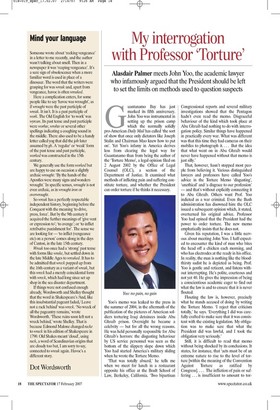Mind your language
Someone wrote about 'reeking vengeance' in a letter to me recently, and the author wasn't talking about smell. Then in a newspaper it was 'reaping vengeance'. It's a sure sign of obsolescence when a more familiar word is used in place of a dinosaur. The word that the writers were grasping for was wreak and, apart from vengeance, havoc is often wreaked.
Here a complication enters, for some people like to say 'havoc was wrought', as if wrought were the past participle of wreak. It isn't. It is a past participle of work. The Old English for 'to work' was wyrcan. Its past tense and past participle were worhte, wrohte or several other spellings indicating a coughing sound in the middle. There also used to be a handy letter called yog that did the job later assumed bygh. A 'regular' or 'weak' form of the past tense and past participle, worked was constructed in the 15th century.
We generally use the form worked but are happy to use on occasion a slightly archaic wrought: 'By the hands of the Apostles were many signs and wonders wrought.' In specific senses, wrought is not even archaic, as in wrought iron or overwrought.
So wreak has a perfectly respectable independent history, beginning before the Conquest with the meaning `to drive, press, force'. But by the 9th century it acquired the further meanings of 'give vent or expression to'; `to avenge'; or `to inflict retributive punishment for'. The sense we are looking for — 'to inflict (vengeance etc) on a person' comes along in the days of Caxton, in the late 15th century.
Wreak too once had a 'strong' past tense with forms like wrake, but settled down in the late Middle Ages to wreaked. It has to be admitted that wreck popped up from the 16th-century as a variant of wreak, but this wreck had a merely coincidental form with wreck, which had long since set up shop in the sea disaster department.
If things were not confused enough already, Wordsworth and Shelley thought that the word in Shakespeare's 'And, like this insubstantial pageant faded,/ Leave not a rack behind' was wreck. 'No wreck of all the pageantry remains,' wrote Wordsworth. 'These ruins soon left not a wreck behind,' wrote Shelley. That is because Edmond Malone changed racke to wrack in his edition of Shakespeare in 1790. Old Shakes meant 'cloud', using rack, a word of Scandinavian origins that are cloudy too but, I am sorry to say, connected to wreak again. Havoc's a different story.

























































 Previous page
Previous page